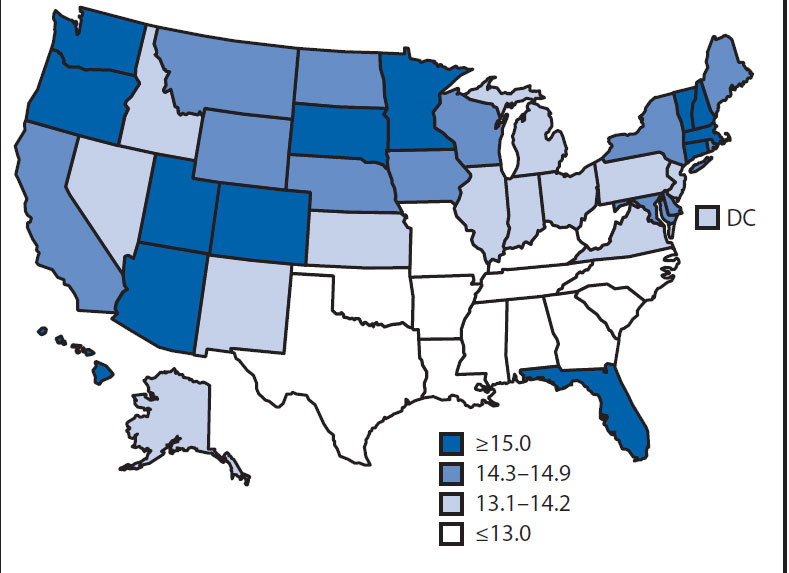Older Adults in South Have Fewer Healthy Years Left

Older adults living in the southern United States have fewer healthy years of life ahead of them than those living in other parts of the U.S., according to a new report from the Centers for Disease Control and Prevention (CDC).
Researchers measured "healthy life expectancy ," or how many years a person can be expected to live in good health. (Healthy life expectancy is thus a certain percentage of a person's total life expectancy.)
The lowest-ranking state was Mississippi, where 65-year-olds can expect to spend 61.5 percent of their remaining life in good health. They have an average of 10.8 healthy years ahead of them, out of an average of 17.5 years total of expected life ahead of them.
The highest-ranking state was Vermont, where 65-year-olds will spend 78.2 percent of their remaining years in good health, with 17.5 healthy years ahead of them, out of 19.4 total remaining years.
At age 65, people living in the South had an average of about 13 healthy years ahead of them. The exception was Florida, where older adults had about 15 healthy years ahead of them.
Total life expectancy was highest in Hawaii, where adults live an average of 21.3 more years after they turn 65 (and 16.2 of those years expected to be healthy).
Overall, at age 65, women have more healthy life years left than men do. Whites have more healthy life years than blacks do, except in Nevada and New Mexico, where blacks have more healthy life years than whites do.
Get the world’s most fascinating discoveries delivered straight to your inbox.
"Although [healthy life expectancy] measures do not identify the reasons for poor health or shorter lives, they provide a snapshot of the health status of a population," the researchers wrote in the July 19 issue of the CDC's Morbidity and Mortality Weekly Report.
Many factors influence people's health as they age, including such healthy behaviors as exercise, not smoking, receiving medical services such as vaccines and cancer screenings, and having access to quality health care, the report said.
"The results presented in this study can be used as a baseline for states to monitor the [healthy life expectancy] of persons aged 65 years as they age, identify health disparities among subpopulations and target resources to improve population health," the report said.
The study was based on survey and census information gathered between 2007 and 2009.
Follow Rachael Rettner @RachaelRettner. Follow Live Science @livescience, Facebook & Google+. Original article on Live Science .

Rachael is a Live Science contributor, and was a former channel editor and senior writer for Live Science between 2010 and 2022. She has a master's degree in journalism from New York University's Science, Health and Environmental Reporting Program. She also holds a B.S. in molecular biology and an M.S. in biology from the University of California, San Diego. Her work has appeared in Scienceline, The Washington Post and Scientific American.
 Live Science Plus
Live Science Plus





